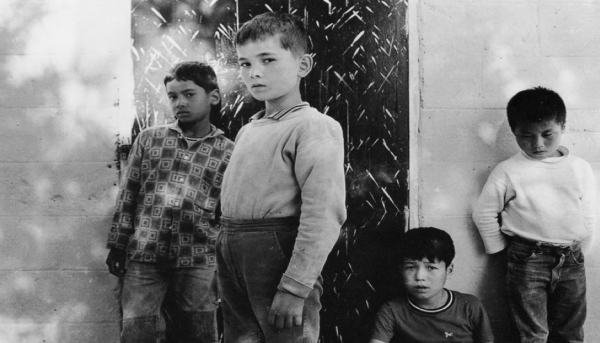Nam Center Colloquium Series | Undesirable Children: The Korean Origins of Transnational Adoption
Young Sun Park, Assistant Professor, Saint Mary's University of Minnesota
This presentation investigates the origins and the development of transnational adoption of Korean biracial children, including the symbolic meanings they carried in Korean society. It would demonstrate the status and representation of biracial children in Korea during the 1950s, analyze the state policies towards them, and trace the historical origins of transnational adoption of Korean children. The biracial children, known as “mixed-blood children,” honhyŏra, became the main representation of the questionable children in the 1950s that could not be “appropriate” members of the nation. The process of rescuing and regulating biracial children would illuminate how Korean society made biracial children into adoptable orphans, which was closely related to the formation of citizenship as well as kinship.
Young Sun Park is an assistant professor in History at the Department of History and Social Sciences at Saint Mary’s University of Minnesota. Her research concerns the history of children in need and their institutionalization in Korea in the nineteenth and twentieth centuries. She received her B.A. from Seoul National University, M.A. from the University of Notre Dame, and Ph.D. from the University of Southern California. She was a 2018-2019 postdoctoral associate at the Council on East Asian Studies at Yale University.
If you are a person with a disability who requires an accommodation to attend this event, please reach out to us at least 2 weeks in advance of this event. Please be aware that advance notice is necessary as some accommodations may require more time for the university to arrange.
Young Sun Park is an assistant professor in History at the Department of History and Social Sciences at Saint Mary’s University of Minnesota. Her research concerns the history of children in need and their institutionalization in Korea in the nineteenth and twentieth centuries. She received her B.A. from Seoul National University, M.A. from the University of Notre Dame, and Ph.D. from the University of Southern California. She was a 2018-2019 postdoctoral associate at the Council on East Asian Studies at Yale University.
If you are a person with a disability who requires an accommodation to attend this event, please reach out to us at least 2 weeks in advance of this event. Please be aware that advance notice is necessary as some accommodations may require more time for the university to arrange.
| Building: | Weiser Hall |
|---|---|
| Event Type: | Lecture / Discussion |
| Tags: | Asia, History, Korea |
| Source: | Happening @ Michigan from Nam Center for Korean Studies, International Institute, Asian Languages and Cultures |


